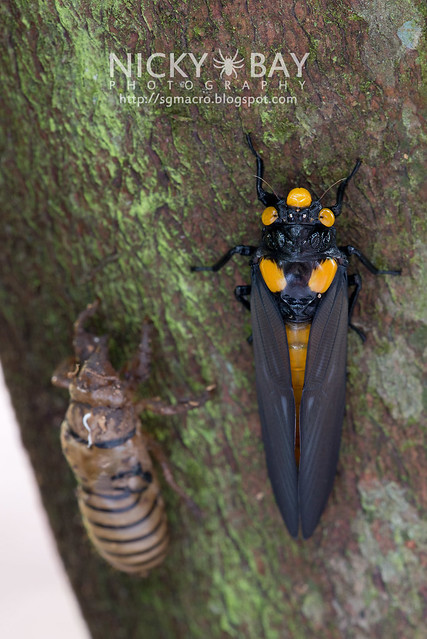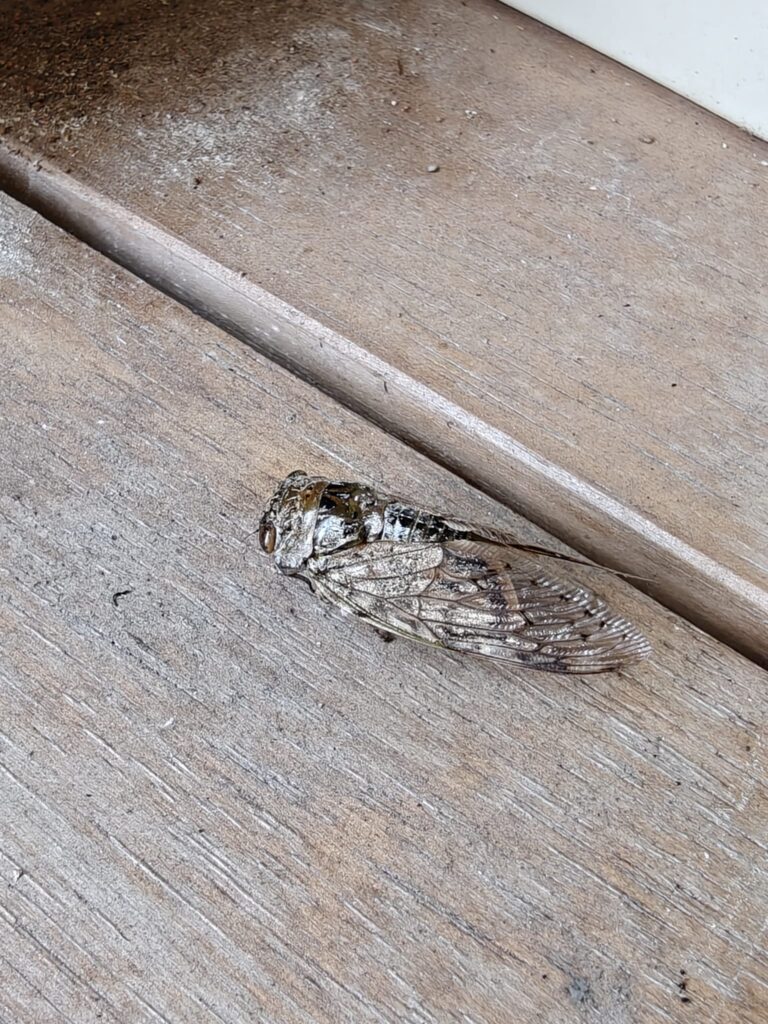By Foo Maosheng & Teresa Teo Guttensohn
12 May 2025

Recently the shrill mating songs of cicadas at Tampines town in Singapore have drawn media attention, residents’ annoyance and unwarranted fear. Many are unaware that these harmless little critters (insects related to leafhoppers) have emerged from mother earth to signal to us the natural change in seasons.
The Chorus of Summer
In Japan during summer, the chorus of cicadas has become a cultural hallmark —an auditory signal of the changing seasons. Despite the noise, cicadas there are widely accepted as a part of summer life, often evoking a sense of nostalgia which one may have seen in Japanese films and anime.
Like springtime cherry blossoms, cicadas are a symbol of the transcience of nature due to its short lifespan, and of rebirth and transformation.
“Singapore Got Seasons Meh?”
Singapore experiences the Inter-monsoon Period from late March to May with light and variable winds, interacting with land and sea breezes. Thunderstorms, at times severe, and hot, humid afternoons are common.
Unlike the 13- and 17-year periodical cicadas found in North America, which emerge in synchronised broods (in the millions or even trillions!), the cicadas in Southeast Asia and Singapore emerge more irregularly, often triggered by climatic conditions like rainfall and humidity.



2) A pair – male (left) and female (right) – showcasing the underside. On the left, you can see 2 tymbal membranes under the last pair of legs, it is where the male cicada buzzes its song. On the right is the female, with the ovipositor at its end which it uses to lay eggs into the branches of trees.
PHOTOS: Foo Maosheng.
Cicadas are Harmless to Humans
In Singapore, the sudden appearance of cicadas in large numbers can be quite overwhelming, especially if one does not understand that cicadas are harmless to humans. Cicadas do not bite, sting, or transmit diseases. In fact, they play a valuable ecological role.
The sudden intrusion of flying cicadas into homes may startle residents, especially those with a natural fear of insects. This reaction is understandable—cicadas are large, noisy, and tend to fly erratically, sometimes into personal spaces. Their sheer numbers during emergence events can also magnify this discomfort.
Loudest Insects in the World
Cicadas hold the record of being the loudest insects in the world! As they only have a few weeks to find a mate, male cicadas sing loudly to attract females, and to defend themselves and protect their territories.
It is understandable that those living near areas with large numbers of cicadas may experience auditory fatigue and discomfort, especially due to the prolonged exposure to their loud mating calls throughout the day.
While it can be stressful, this natural spectacle of mass emergence is also a fascinating event — one that reminds us of the hidden biodiversity around us.
A Remarkable Natural Phenomenon
Rather than viewing them as a nuisance, perhaps we can begin to see cicadas as a brief but remarkable reminder of the natural rhythms that still persist in our urban environment.
Impact of Climate Change on Cicadas and other Insects
Insects like bees and cicadas play crucial ecosystem roles. Climate change-related disruptions to insect populations can have cascading effects on pollination, plant health, and other ecosystem services.
Rising temperatures and changing weather patterns can potentially disrupt the periodic emergences of cicadas.
With habitat loss and impact of climate change, how much longer will we be able to hear the striking summer songs of cicadas?
More info:
https://cicadatree.org.sg/about/learn-about-cicadas/
Contributors

Teresa Teo Guttensohn is the Co-founder of Cicada Tree Eco-Place.

